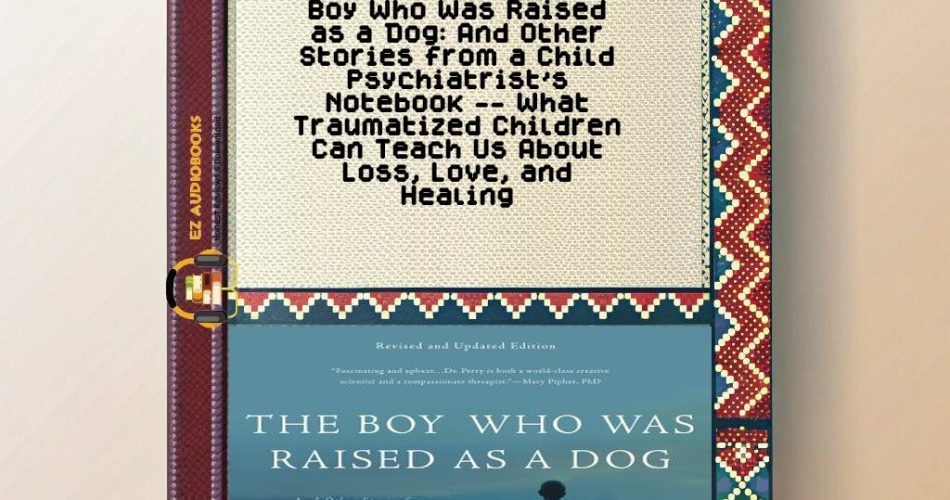Audiobook Sample
Listen to the sample to experience the story.
Please wait while we verify your browser...
- Title: Boy Who Was Raised as a Dog: And Other Stories from a Child Psychiatrist’s Notebook — What Traumatized Children Can Teach Us About Loss, Love, and Healing
- Author: Bruce D. Perry, M.D., Ph.D., Maia Szalavitz
- Narrator: Chris Kipiniak
- Length: 13:12:40
- Version: Abridged
- Release Date: 11/09/2018
- Publisher: Hachette Book Group USA
- Genre: Health & Wellness, Disorders & Diseases, Marriage & Family, Health & Wellness, Disorders & Diseases, Marriage & Family
- ISBN13: 9.78E+12
As I listened to ‘The Boy Who Was Raised as a Dog’ while riding a slow train through the Spanish countryside, the rhythmic clack of wheels on tracks became an unexpected counterpoint to Dr. Perry’s profound case studies. The audiobook experience brought to mind those evenings in Oaxaca, where painful family histories were shared with equal measures of sorrow and hope – much like the children’s stories in this remarkable work.
Chris Kipiniak’s narration strikes that delicate balance between clinical precision and deep compassion. His voice carries the weight of these difficult stories without ever becoming maudlin, reminding me of how the best healers I’ve met in my travels – from Mayan curanderos to Tibetan monks – deliver hard truths with gentle steadiness. The audio quality is crisp and intimate, making complex neurobiological concepts feel accessible.
What makes this audiobook exceptional is how Dr. Perry and Szalavitz weave together science and storytelling. Each case study unfolds like a journey – we meet children shattered by unimaginable trauma, then walk with them toward recovery. The chapter about the titular boy raised in a dog kennel particularly resonated with me, recalling a street child I met in Rio who’d formed similar survival bonds with stray dogs. The book explains how such adaptations make perfect neurological sense given their circumstances.
The listening experience becomes a masterclass in trauma-informed care. Dr. Perry’s neurosequential approach – understanding how experiences shape developing brains – transformed how I view behavioral issues in children I encounter during my travels. His explanation of ‘bottom-up’ regulation (calming the body to calm the mind) reminded me of watching a Thai monk teach anxious children to breathe in sync with temple bells.
While the content is often heavy, the audiobook never feels overwhelming. Kipiniak’s measured pacing allows space for reflection, much like the therapeutic pauses my Oaxacan host grandmother would leave between difficult story moments. The production wisely includes subtle musical cues that help transition between intense chapters, functioning like the herbal teas traditionally served during healing sessions worldwide.
If I had one critique, it’s that some case studies left me wanting more follow-up – a testament to how deeply invested I became in these children’s journeys. The science sections, while fascinating, occasionally benefit from rewinding to fully absorb (a luxury the audiobook format thankfully provides).
Compared to similar works in the trauma literature genre, this audiobook stands out for its narrative richness. Where some texts feel clinical, this one breathes with life – you can almost hear the children’s laughter returning as they heal. It pairs beautifully with works like ‘The Body Keeps the Score’ but offers more direct case applications.
This audiobook will particularly resonate with educators, travelers like myself who work with children abroad, or anyone seeking to understand human resilience. Listen during a quiet walk or commute when you can fully absorb its lessons. Keep your notebook handy – I filled pages with insights about how trauma shapes the stories we tell about ourselves and our communities.
As the evening call to prayer echoes across Seville’s rooftops, I’m reminded that healing, like travel, is ultimately about connection – to ourselves and others. Dr. Perry’s work, beautifully rendered in this audiobook, shows how even the most broken stories can find wholeness. May we all learn to listen with such compassion. Hasta pronto, fellow story-gatherers – may your next journey, whether through pages or distant lands, bring you closer to understanding this beautiful, broken world.
Marcus Rivera

